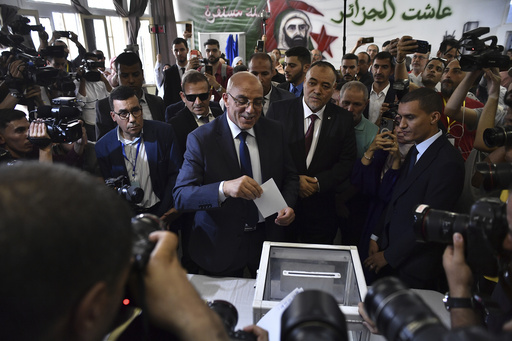In Algeria, President Abdelmadjid Tebboune has been declared the victor of the country’s presidential election, securing another term in office following pro-democracy demonstrations that led to the removal of his predecessor. The independent election authority of Algeria announced that Tebboune won by a landslide, capturing 94% of the vote. His challengers, Islamist Abdelali Hassani Cherif and socialist Youcef Aouchiche, garnered 3% and 2.1% of the vote, respectively. The voter turnout was reported to be low, with less than six million out of 24 million eligible voters participating in the election.
Algeria, the largest country in Africa by area and the continent’s second most populous after South Africa, held its presidential election in 2024. This year witnesses over 50 elections globally, representing more than half of the world’s population. Despite criticisms from activists and international organizations like Amnesty International regarding the oppressive environment during the campaign period, Tebboune and his opponents encouraged political engagement, particularly targeting the Algerian youth, who face high levels of poverty and unemployment.
Critics of the election argue that it only serves to reinforce the existing political system. Throughout the election season, there were reports of harassment and legal actions against individuals linked to opposition parties, media outlets, and civil society organizations, leading some to view the election as a superficial process that does not promote meaningful change.
